COVID-19 Vaccine Frequently Asked Questions (FAQ)
(Vietnamese translation below)
At VFP, we understand that the pandemic and coronavirus (COVID-19) can feel frightening and overwhelming for our community. We want to help by providing clear and accurate information for people in our community to feel safe and well-informed as we navigate through the pandemic together.
The information provided below has been sourced from the World Health Organisation (WHO) updated on 13 May 2021. Information about COVID-19 vaccines is quickly evolving and VFP will aim to update this FAQ on an ongoing basis in line with updated information provided by the WHO and as we learn more.
Who should get the COVID-19 vaccines?
The COVID-19 vaccines are safe for most people 18 years and older, including those with pre-existing conditions of any kind, including auto-immune disorders. These conditions include: hypertension, diabetes, asthma, pulmonary, liver and kidney disease, as well as chronic infections that are stable and controlled. Even if you have already had COVID-19, you should be vaccinated when it is offered to you. The protection that someone gains from having COVID-19 will vary from person to person, and we also don’t know how long natural immunity might last.
If supplies are limited in your area, discuss your situation with your care provider if you:
Have a compromised immune system
Are pregnant or nursing your baby
Have a history of severe allergies, particularly to a vaccine (or any of the ingredients in the vaccine)
Are severely frail
Currently the vaccine is being offered to most people over the age of 18 years old, at high risk or caring for someone at high risk and those who are key workers. (NHS website)
What are the benefits of getting vaccinated?
The COVID-19 vaccines produce protection against the disease, as a result of developing an immune response to the SARS-Cov-2 virus. Developing immunity through vaccination means there is a reduced risk of developing the illness and its consequences. This immunity helps you fight the virus if exposed. Getting vaccinated may also protect people around you, because if you are protected from getting infected and from disease, you are less likely to infect someone else. This is particularly important to protect people at increased risk for severe illness from COVID-19, such as healthcare providers, older or elderly adults, and people with other medical conditions.
Can we stop taking precautions after being vaccinated?
Vaccination protects you from getting seriously ill and dying from COVID-19. For the first fourteen days after getting a vaccination, you do not have significant levels of protection, then it increases gradually. For a single dose vaccine, immunity will generally occur two weeks after vaccination. For two-dose vaccines, both doses are needed to achieve the highest level of immunity possible.
While a COVID-19 vaccine will protect you from serious illness and death, we still don’t know the extent to which it keeps you from being infected and passing the virus on to others. To help keep others safe, continue to maintain at least a 1-metre distance from others, cover a cough or sneeze in your elbow, clean your hands frequently and wear a mask, particularly in enclosed, crowded or poorly ventilated spaces. Always follow guidance from local authorities based on the situation and risk where you live.
Do the vaccines protect against variants?
The COVID-19 vaccines are expected to provide at least some protection against new virus variants and are effective at preventing serious illness and death. That’s because these vaccines create a broad immune response, and any virus changes or mutations should not make vaccines completely ineffective. If any of these vaccines become less effective against one or more variants, it will be possible to change the composition of the vaccines to protect against these variants. Data continues to be collected and analysed on new variants of the COVID-19 virus.
While we are learning more, we need to do everything possible to stop the spread of the virus in order to prevent mutations that may reduce the efficacy of existing vaccines. This means staying at least 1 metre away from others, covering a cough or sneeze in your elbow, frequently cleaning your hands, wearing a mask and avoiding poorly ventilated rooms or opening a window.
For more information and FAQs about COVID-19 and the vaccines, visit: https://www.who.int/emergencies/diseases/novel-coronavirus-2019/question-and-answers-hub/q-a-detail/coronavirus-disease-(covid-19)-vaccines
***
Các câu hỏi thường gặp về
vắc xin COVID-19
Thông tin cung cấp sau được trích từ nguồn Hiệp Hội Sức Khỏe Toàn Cầu (WHO), cập nhật vào ngày 13 tháng Năm 2021. Thông tin về vắc-xin COVID-19 đang nhanh chóng được phát triển và VFP hướng tới cập nhật liên tục các câu hỏi thường gặp từ các thông tin mới nhất bởi WHO và các thông tin chúng tôi tìm hiểu thêm.
Ai nên tiếp nhận vắc-xin COVID-19?
Vắc-xin COVID 19 an toàn cho hầu hết những người từ 18 tuổi trở lên, bao gồm cả người mắc các bệnh nền dưới bất kỳ hình thức nào, bao gồm rối loạn tự miễn dịch. Những tình trạng này bao gồm: tăng huyết áp, tiểu đường, hen suyễn, bệnh phổi, gan, thận, cũng như các bệnh nhiễm trùng tính đã được kiểm soát và ổn định. Cả khi bạn đã bị COVID-19, bạn cũng nên tiêm vắc-xin khi bạn được cung cấp. Sự bảo vệ mà vắc-xin đem lại sẽ khác nhau trên từng người, nên thời gian khả năng miễn dịch tự nhiên trên từng người không thể dự đoán được.
Nếu vắc-xin cung cấp ở khu vực bạn bị hạn chế, hãy thảo luận tình trạng của bạn với người cung cấp dịch vụ chăm sóc của bạn nếu bạn:
Có hệ thống miễn dịch đang bị tổn thương
Đang mang thai hay cho con bú
Có tiền sử dị ứng nghiêm trọng, đặc biệt là với vắc-xin ( hoặc bất kỳ thành phần nào trong vắc-xin)
Bị suy nhược nghiêm trọng
Hiện tại vắc-xin đang được cung cấp cho hầu hết những người trên 25 tuổi, bất kỳ ai có nguy cơ cao hoặc đang chăm sóc người có nguy cơ cao và những người làm công việc chính. (Trang web của NHS)
Lợi ích của tiêm vắc-xin là gì?
Vắc-xin COVID-19 tạo ra khả năng bảo vệ chống lại căn bệnh này, là kết quả của việc phát triển phản ứng miễn dịch đối với vi rút SARS-Cov-2. Phát triển khả năng miễn dịch thông qua tiêm vắc-xin đồng nghĩa làm giảm nguy cơ phát triển bệnh tật và hậu quả của nó. Khả năng miễn dịch này giúp bạn chống lại vi rút nếu tiếp xúc. Vắc-xin cũng có thể bảo vệ những người xung quanh bạn, bởi vì nếu bạn được bảo vệ khỏi bị nhiễm trùng và khỏi bệnh tật, bạn sẽ ít có khả năng lây nhiễm cho người khác hơn. Điều này đặc biệt quan trọng để bảo vệ những người có nguy cơ cao mắc bệnh nặng do COVID-19, chẳng hạn như các nhà cung cấp dịch vụ chăm sóc sức khỏe, người lớn tuổi hoặc cao tuổi và những người có các tình trạng y tế khác.
Chúng ta có thể dừng các biện pháp phòng ngừa sau khi tiêm vắc-xin không?
Tiêm phòng giúp bảo vệ bạn khỏi bị ốm nặng và tử vong do COVID-19. Trong mười bốn ngày đầu tiên sau khi vắc-xin, mức độ bảo vệ bạn của vắc-xin là không đáng kể, sau đó sẽ tăng dần. Đối với vắc-xin một liều, khả năng miễn dịch thường xảy ra sau hai tuần kể từ khi tiêm chủng. Đối với vắc xin hai liều, cần cả hai liều để đạt được mức độ miễn dịch cao nhất có thể.
Mặc dù vắc-xin COVID-19 sẽ bảo vệ bạn khỏi bệnh tật nghiêm trọng và tử vong, nhưng chúng tôi vẫn chưa biết mức độ mà vắc-xin này giúp bạn không bị nhiễm và truyền vi-rút sang người khác. Để giữ an toàn cho người khác, hãy tiếp tục duy trì khoảng cách ít nhất 1 mét với họ, che khuỷu tay khi ho hoặc hắt hơi, vệ sinh tay thường xuyên và đeo khẩu trang, đặc biệt là ở những nơi kín, đông người hoặc kém thông gió. Luôn tuân theo hướng dẫn của chính quyền địa phương dựa trên tình hình và rủi ro nơi bạn sinh sống.
Vắc-xin có bảo vệ chống lại các biến thể không?
Các vắc-xin COVID-19 được kỳ vọng sẽ cung cấp ít nhất một số biện pháp bảo vệ chống lại các biến thể vi-rút mới và có hiệu quả trong việc ngăn ngừa bệnh tật nghiêm trọng và tử vong. Đó là bởi vì những loại vắc xin này tạo ra một phản ứng miễn dịch rộng rãi và bất kỳ sự thay đổi hoặc đột biến nào của vi rút sẽ không làm cho vắc xin hoàn toàn vô hiệu. Nếu bất kỳ loại vắc xin nào trong số này trở nên kém hiệu quả hơn đối với một hoặc nhiều biến thể, thì có thể thay đổi thành phần của vắc xin để bảo vệ chống lại các biến thể này. Dữ liệu tiếp tục được thu thập và phân tích về các biến thể mới của virus COVID-19.
Trong khi chúng ta đang tìm hiểu thêm, chúng ta cần làm mọi thứ có thể để ngăn chặn sự lây lan của vi rút nhằm ngăn chặn các đột biến có thể làm giảm hiệu quả của các loại vắc xin hiện có. Điều này có nghĩa là tránh xa những người khác ít nhất 1 mét, che khuỷu tay khi ho hoặc hắt hơi, thường xuyên rửa tay, đeo khẩu trang và tránh những phòng thông gió kém hoặc hãy mở cửa sổ.
Để biết thêm thông tin và câu hỏi thường gặp về COVID-19 và vắc xin, hãy truy cập: https://www.who.int/emergencies/diseases/novel-coronavirus-2019/question-and-answers-hub/q-a-detail/coronavirus-disease-(covid-19)-vaccines

